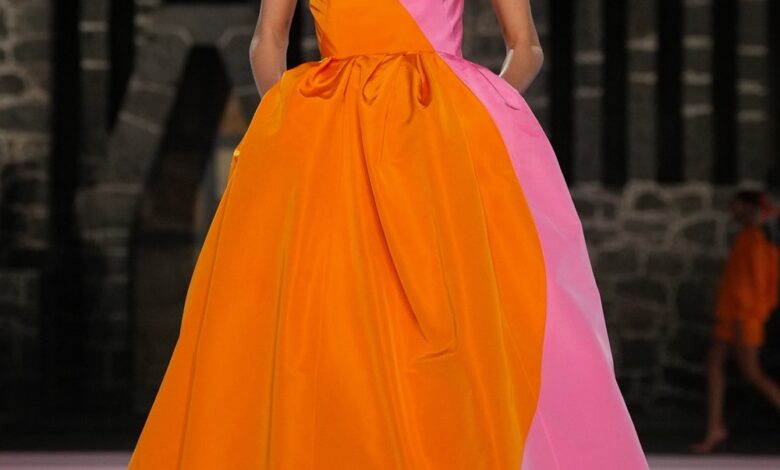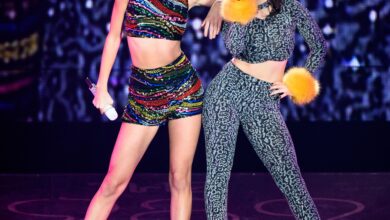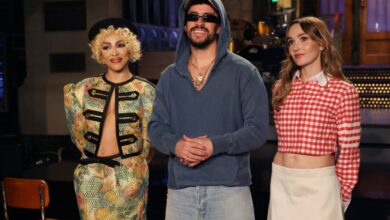Carolina Herrera Resort 2025

Last year, Carolina Herrera was the first American label to join the sisterhood of the traveling pre-collection shows, staging its resort collection in Rio de Janeiro. This year, designer Wes Gordon continued his tour through Latin America, bringing the show to Mexico City’s famed Museo Anacahualli, designed by Diego Rivera to house his vast collection of Pre-Columbian and Pre-Hispanic artifacts. “I knew from the beginning that we were showing at Anacahualli,” he said a day before the show. “Color is how I always start my process, and the idea of those sunset colors hitting a volcanic rock was really inspiring to me.”
And so, a few minutes past six o’ clock, as the blue sky began to turn shades of light pink and yellow, the first model stepped onto the runway wearing a voluminous silk ballgown on which an orange-hot sun bisects a peony pink background. From there, a brilliant color palette burst forward in Frida Kahlo blues, cacao seed burgundies, and grassy greens. A champagne double-faced silk A-line skirt revealed its bold blue underside as the model swung her hips, while on another burgundy dress, folded sleeves revealed a slash of fuchsia.
But Gordon didn’t just pay homage to Mexico through his use of color; he also invited four Mexican artisans to collaborate on a series of one-of-a-kind garments. From Hidalgo, María de los Ángeles Licona added her traditional embroidery to cotton separates, including voluminous blouses that were among the collection’s most covetable pieces—especially a green version embroidered in pink thread. Virginia Verónica Arce from Tlaxcala did intricate lace-like embroidery on ribbons of black silk which Gordon used to piece together a kicky short dress and a supremely elegant long gown with a halter neck that closed the show. Also from Tlaxcala was the ceramicist Jacqueline España, whose work unexpectedly embellished the collars of mod-ish shift dresses, and more winningly, the lapels of a double-breasted slouchy blue jacket. The jewelry was made by Araceli Nibra Matadamas from Oaxaca, using jicara, which she hand-painted to match the floral print that also appeared on dresses in the collection. It was inspired by the Mercado Jamaica flower market, “as if you’re looking down at all the different buckets of flowers.”
“I think of these pieces as a real collaboration,” Gordon said of working with the artisans. “There was nothing forced. We worked on the pieces and suggested areas [that they could embellish] and sent it to them.” After the last model left the runway, Gordon came out and walked towards where the four women designers were sitting in the front row and applauded them, before taking his customary bow.
This season marks Carolina Herrera’s first foray into see now-buy now territory. “There’s so much excitement and energy generated by a destination show like this; we wanted to give our clients the opportunity to channel that immediately into instant gratification rather than waiting three or four months,” he explained. To further emphasize the instant gratification angle, the lineup also featured Gordon’s five-piece capsule collection with Frame that includes a cropped denim jacket and mini-skirt—a cheeky take on a ladylike suit—and a denim ball skirt, all in the collection’s rich hues. The looks that mixed pieces from the main collection with the Frame collaboration were the strongest examples of how Gordon has not only maintained the Carolina Herrera mandate for glamour and opulence, but has also added a more real-life, down-to-earth energy that can appeal to women of all ages. “It’s wearable, it’s easy, it’s happy.”


